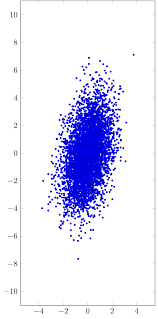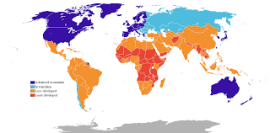- Fecha(s): 26/04/2021
- Lugar: Seminarios online CIO: http://cio.edu.umh.es/seminariosonline/
- Ponente: Cristina Polo Fernández (Universidad de Extremadura)

La medición de la eficiencia en los diversos ámbitos de la economía pública ha suscitado gran interés durante las últimas décadas. Las técnicas más utilizadas en la literatura para estimar el desempeño de las unidades productivas han sido claramente los modelos de frontera no paramétricos tales como el DEA, el FDH o, más recientemente, sus…
- Fecha(s): 13/04/2021
- Lugar: Seminarios online CIO: http://cio.edu.umh.es/seminariosonline/
- Ponente: Joaquin Sanchez Soriano, Centro de Investigación Operativa, UMH

Un problema de atribución consiste simplemente en determinar cuál es la relevancia de una serie de factores para la consecución de un objetivo particular. Aunque la formulación del problema parece sencilla, no lo es tanto, y por ello existe toda una literatura sobre este problema en muy diversos campos. Por ejemplo, este tipo de problemas…
- Fecha(s): 24/03/2021
- Lugar: Seminarios online CIO: http://cio.edu.umh.es/seminariosonline/
- Ponente: Jose Manuel Cordero, Universidad de Extremadura

El propósito del seminario es dar a conocer una nueva línea de investigación dentro de la literatura sobre el bienestar subjetivo que consiste en la estimación de medidas de «eficiencia de la felicidad»; (o déficit de felicidad) utilizando técnicas de frontera. Este enfoque innovador ha sido adoptado en algunos estudios recientes que consideran a los…
- Fecha(s): 15/03/2021
- Lugar: Seminarios online CIO: http://cio.edu.umh.es/seminariosonline/
- Ponente: Mikel Sesma

In the field of Information Fusion, and, more particularly, data aggregation, the process of aggregation deals with the problem of finding a single number that is able to represent an input of n numbers. In this framework, there is a trend towards relaxing the monotonicity conditions that are often required so that a function can…
- Fecha(s): 08/03/2021
- Lugar: Videoconferencia vía Zoom (se proporcionará el link a la sesión través del Aula Virtual)
- Ponente: Hassan Aly

While all research and data collections in the past year has been focused on the damaging impact of Covid19 on the national and international level, as an unprecedented phenomenon that is greater in its negative magnitude than the great depression of 1929-33, this project is centered around the other side of the coin. We will…
- Fecha(s): 01/03/2021
- Lugar: Centro de Investigación Operativa-UMH: http://cio.edu.umh.es/seminariosonline/
- Ponente: Domingo Morales, Centro de Investigación Operativa, UMH

La charla introduce predictores óptimos empíricos de parámetros bivariados de área pequeña, como razones de sumas o sumas de razones, asumiendo que el vector objetivo a nivel de unidad sigue un modelo de regresión de errores anidados bivariados. Los correspondientes errores cuadráticos medios se estiman mediante bootstrap paramétrico. Varios experimentos de simulación estudian empíricamente el…
- Fecha(s): 23/02/2021
- Lugar: Seminarios online CIO: http://cio.edu.umh.es/seminariosonline/
- Ponente: Jordi Pons i Puig (Dolby Laboratories) : https://github.com/jordipons/musicnn

A brief review of the state-of-the-art in music informatics research and deep learning reveals that such models achieved competitive results for several music-related tasks. In this talk I will provide insights in which deep learning architectures are (according to our experience) performing the best for audio classification. To this end, I will first introduce a…
- Fecha(s): 11/02/2021
- Lugar: Videoconferencia vía Zoom (se proporcionará el link a la sesión través del Aula Virtual)
- Ponente: Ottaviano Canuto

The growth and productivity performance of emerging market and developing economies since the 2008 global financial crisis failed to repeat the achievements of the previous decade. Besides frustrating expectations that they might become the new growth pole in the global economy, their convergence to per capita incomes of advanced economies has suffered a setback. Nonetheless,…
- Fecha(s): 08/02/2021
- Lugar: Seminarios online CIO: http://cio.edu.umh.es/seminariosonline/
- Ponente: Magdalena Kapelko (Wroclaw University of Economics and Business in Poland)

One of themajor challenges in the research on corporate social responsibility (CSR) isthe aggregation of the CSR metrics into overall measures of CSR practices byfirms. The paper computes composite indicators of CSR from an efficiencyperspective using data envelopmentanalysis (DEA) for a sample of international food and beveragemanufacturing firms over the period 2011-2018. The study’s contributions…
- Fecha(s): 01/02/2021
- Lugar: Seminarios online CIO: http://cio.edu.umh.es/seminariosonline/
- Ponente: Shashiryar Nasirov (Universidad Adolfo Ibáñez, Santiago de Chile)

A rapid expansion of renewables in the Chilean energy matrix, mostly thanks to exceptional solar and wind resources, combined with a rapid decrease in the cost of renewable energy technologies, intensified current policy debates to reduce the role of coal, which is the largest source of CO2 emissions in the generation mix. Recently, the main…











